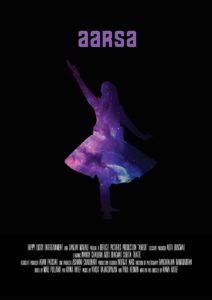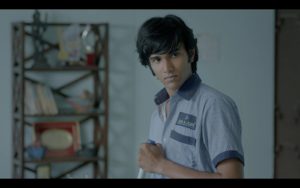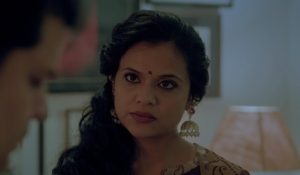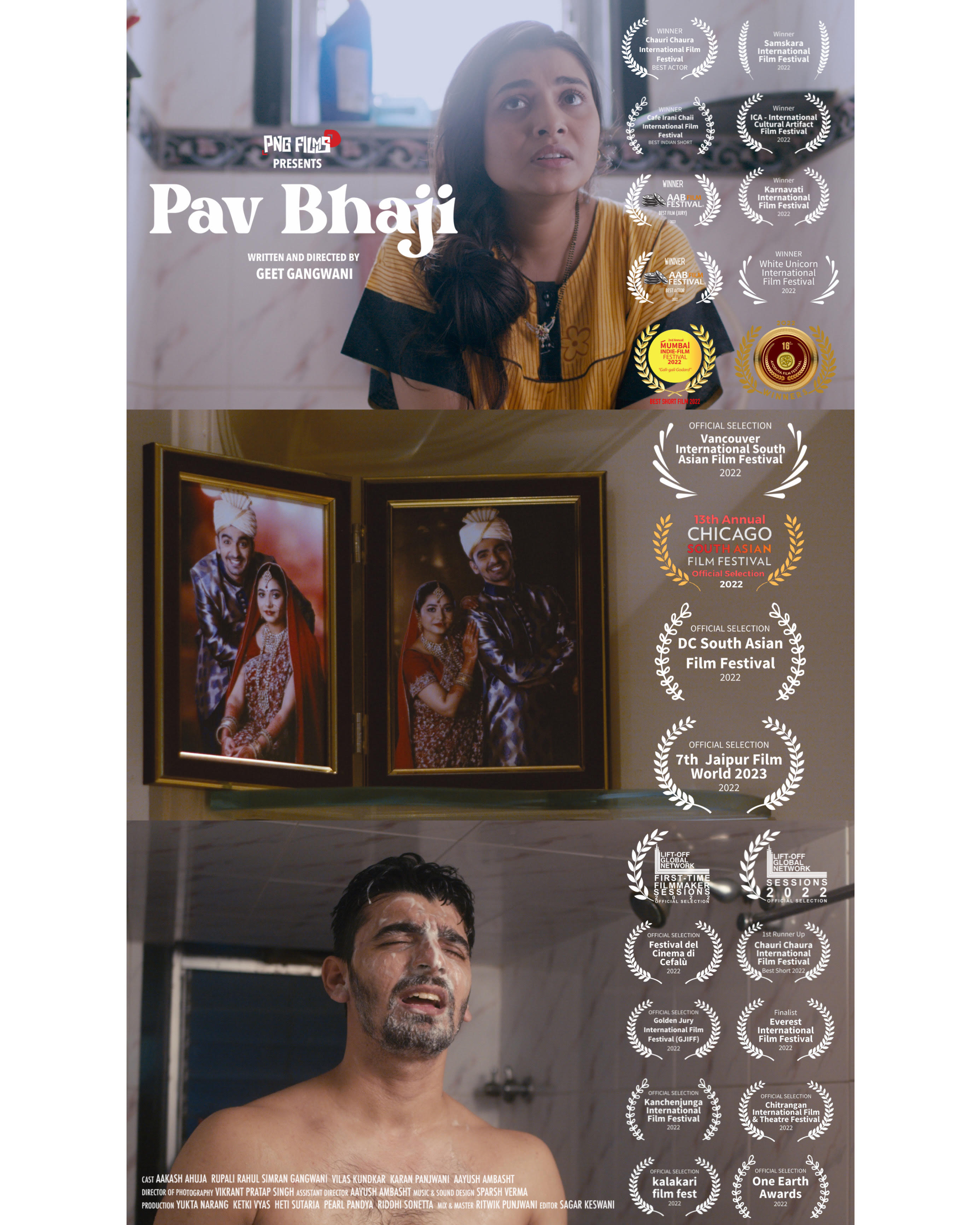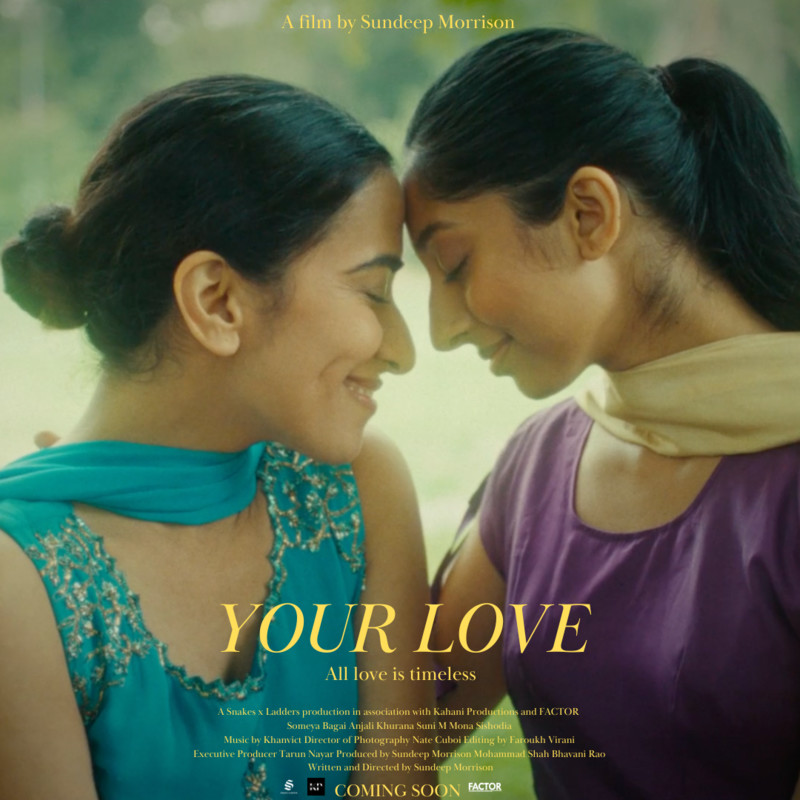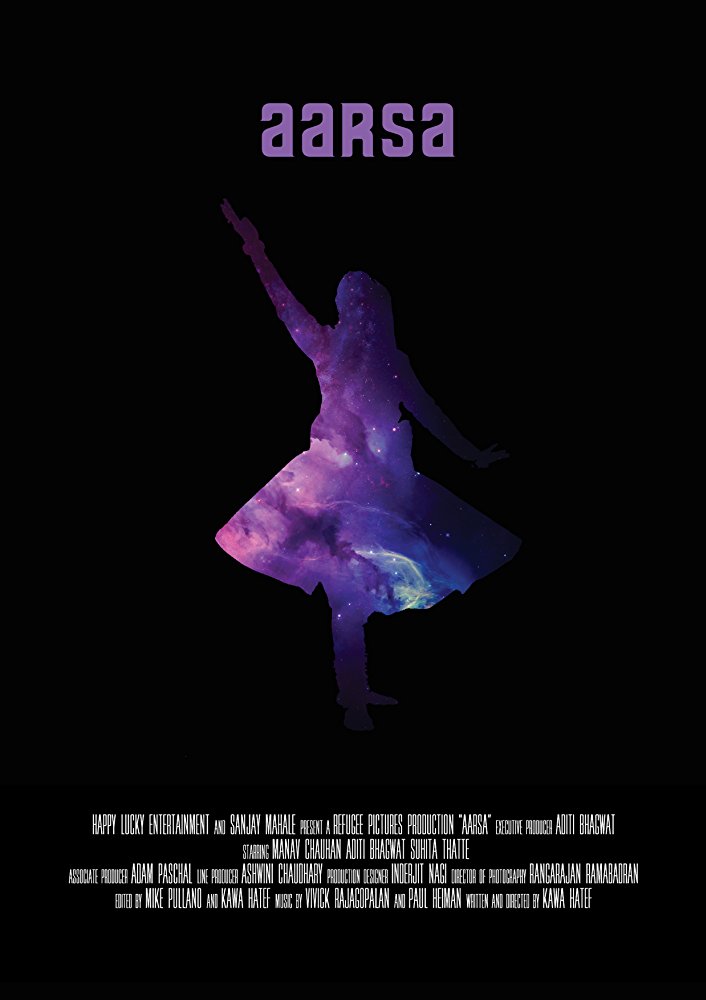
DFW SAFF 2018 Short Film Review “Aarsa”
WATCH THE TRAILER HERE
First, the Recap:
The laws of attraction. While it may seem immediately evident to some exactly what entails appeal or allure directed towards the opposite sex, for others it is an enigma whose depths are not easy to plumb. Beyond the base human instincts we all share, there can be a deeper, more profound engagement that manifests itself, which to explore can lead to self revelation. At a local dance studio, a young caretaker named Raju (Manav Chauhan) goes about his duties silent and completely unnoticed by the beautiful head instructor Sitara (Aditi Bhagwat) or her class. His steady gaze, which could border on unnerving, holds within it an innocence that cannot be denied as he watches her glide across the studio floor.
Finding no acknowledgement from the focus of his watchful eyes while also being treated with a certain measure of neglect by his boss Buntoo (Parth Akerkar), Raju finds no solace on the home front either, constantly being lorded over by his strict mother Saku (Suhita Thatte) and the expectations she possesses for him to become the man he should. Already battling a sense of confusion over who he desires to be–the image others demand or freedom to express his own inclinations–a moment arrives involving one of Sitara’s dance costumes that radically alters Raju’s outlook and perspective for himself. Even as this new reality beckons, little does Raju or Sitara realize that both of their roads are finally about to cross.
Next, my Mind:
The LGBTQ-themed short film offerings continued at DFW SAFF 2018 with the Texas debut of this 18-minute project from writer/director/editor Kawa Hatef which delivered a highly engaging and clever twist in its narrative’s plot, taking the viewer in one direction to start, but then revealing that everything is not actually what it seemed, therefore aiding in the story having the ultimate impact it did. Rather than being what appeared to be a tale of quiet obsession and longing for another, the film turns this around and creates a beautiful portrait of one young man’s struggles and triumphs as he comes into his own the way he fully desires, which not only dramatically affects himself, but also whom we originally pictured was the object of his desire. There’s such a deep sense of human connection presented which makes the circumstances both Raju and Sitara face so much more potent and stirring, not only in their individual experience, but in the shared one that brings them together during a poignant finale. As this reviewer has mentioned in the past, the overall themes found in LGBTQ films are not a personal preference, but when they’re executed with such elegant artistic resolve like here, it continues to illustrate the exceptions to the rule.
Chauhan exudes such a wonderfully realistic purity in his role as Raju, a shy young man who, as aforementioned above, we initially see as being in a state of benign, unrequited love, perhaps only longing for that one chance to express his feelings. Watching him pine for Sitara is heartfelt and true, which endears us to him. Yet, as events unfold and the actual truths of his actions becomes more apparent, Raju’s transformation and perseverance through it all is likewise believable and heartwarming, even in the midst of having to face the harsh reactions of his mother towards his choices. It’s all very well enacted by Chauhan. Bhagwat shines brightly here as the object of Raju’s fascination Sitara, a hard-working dance instructor very much caught up in the preparations for a coming show with her dance class that have her frustrated and on edge. Never noticing Raju at all, she simply strives to maintain her composure and confidence in what tasks are currently at hand. When the time comes where the story’s real nature starts to manifest, and Sitara’s own life challenges rear up, the significance of her eventual run-in with Raju is made that much more evident, as it becomes a time both of their dreams find the light. Bhagwat portrays all this with finesse.
Supporting turns are present from Thatte as Raju’s uncompromising mother Sake who has more than a fair share of things to say about her son’s choices, Akerkar as Raju’s rather lazy and mildly domineering dance studio boss Buntoo, as well as an appearance by Charudatta Bhagwat as Sitara’s questionably supportive husband Mukish. In total, with its distinctly touching exploration of its themes of self-discovery and well-orchestrated overall presentation, “Aarsa” stands as yet another solid example of what independent film can accomplish in expressing love, desire, journeys that transform lives, and the human condition in this modern age.
As always, this is all for your consideration and comment. Until next time, thank you for reading!
